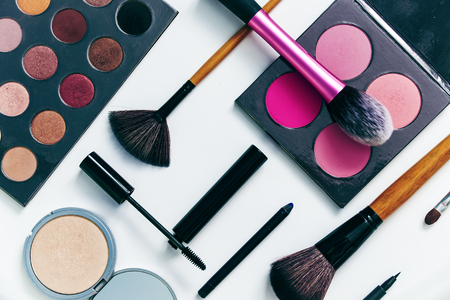Introduction: Shifting Tides in UK Beauty Culture
The British beauty landscape is experiencing a transformative shift as sustainability takes centre stage in consumer choices and industry standards. No longer just a trend, the demand for eco-friendly and ethical makeup options is influencing how UK shoppers view personal care, self-expression, and even luxury. From high streets to online boutiques, more Britons are scrutinising product labels, favouring brands with transparent sourcing, recyclable packaging, and cruelty-free formulas. This growing consciousness is not only shaping buying habits but also redefining what it means to look and feel beautiful in the UK. As sustainable values become woven into the fabric of everyday life, British beauty norms are evolving—encouraging innovation and responsible practices throughout the sector.
Key Components of Sustainable Makeup
Sustainable makeup has become a prominent trend in the UK’s beauty industry, with consumers increasingly favouring products that align with environmental and ethical values. The shift towards sustainability is not just about product performance, but also about the impact that ingredients, packaging, and sourcing have on our planet and communities. Here’s an in-depth look at the key components defining sustainable makeup choices in the UK market.
Eco-Friendly Ingredients
The foundation of any sustainable makeup product lies in its ingredients. UK brands are prioritising naturally derived, organic, and biodegradable ingredients that are gentle on both skin and the environment. Common eco-friendly ingredients include plant-based oils, mineral pigments, and botanical extracts sourced from renewable resources. These components minimise chemical runoff into waterways and reduce the risk of skin irritation or allergies often linked to synthetic chemicals.
Popular Eco-Friendly Ingredients in UK Makeup
| Ingredient | Source | Benefit |
|---|---|---|
| Jojoba Oil | Plant-based (Jojoba shrub) | Moisturises without clogging pores |
| Mica | Mineral-based | Adds shimmer; ethically sourced mica avoids child labour concerns |
| Aloe Vera | Plant-based (Aloe vera leaves) | Soothes and hydrates sensitive skin |
| Shea Butter | Plant-based (Shea tree nuts) | Nourishes dry skin; supports fair-trade co-operatives in Africa |
| Green Tea Extract | Plant-based (Camellia sinensis) | Provides antioxidants for anti-ageing benefits |
Recyclable and Refillable Packaging
Sustainable makeup extends beyond what’s inside the product to how it is packaged. In response to mounting concerns over plastic pollution, many UK brands now use recyclable materials such as glass, aluminium, and post-consumer recycled plastics. Refillable systems are also gaining traction, allowing consumers to purchase refills for their favourite products rather than buying entirely new packaging each time. This reduces waste sent to landfill and encourages a circular economy within the beauty sector.
Packaging Types & Their Environmental Impact
| Packaging Type | Material Example | Sustainability Benefit |
|---|---|---|
| Glass Jars/Bottles | Clear or frosted glass | Easily recyclable; non-reactive with most formulas |
| Aluminium Tins/Tubes | Aluminium alloy containers | Lightweight, endlessly recyclable; lower carbon footprint compared to plastic |
| Paper-Based Palettes/Boxes | Kraft paper/cardboard | Biodegradable; made from responsibly managed forests (FSC certified) |
| Refillable Compacts/Cases | Bamboo/metal/plastic composite cases with removable inserts | Lowers single-use packaging waste; encourages long-term product loyalty |
| PCR Plastic Bottles/Jars | Bottles made from post-consumer recycled plastic | Reduces demand for virgin plastic; closes recycling loop in UK supply chain |
Ethical Sourcing Practices
The UK beauty industry is also placing greater emphasis on ethical sourcing, ensuring that raw materials are obtained without exploiting workers or damaging local ecosystems. Many brands adhere to Fairtrade standards or partner with community co-operatives to support fair wages and safe working conditions. Additionally, cruelty-free certifications (such as Leaping Bunny) guarantee that products have not been tested on animals—a value increasingly important to British consumers.
Summary Table: Key Sustainable Makeup Components in the UK Market
| Sustainability Aspect | Main Features |
|---|---|
| Ingredients | Naturally derived, organic, vegan-friendly, non-toxic |
| Packing | Recyclable, refillable, biodegradable materials; minimalistic design |
| Sourcing | Fairtrade, cruelty-free certification, local/community support |
The adoption of these core sustainable practices is reshaping consumer expectations across the UK beauty sector. By prioritising eco-friendly formulations, responsible packaging solutions, and ethical supply chains, brands can build trust with environmentally conscious customers while contributing positively to both society and the environment.

3. Consumer Awareness and Changing Habits
The UK’s beauty industry is witnessing a significant transformation as consumers become increasingly aware of what goes into their makeup bags. British shoppers are now more discerning, seeking out brands that offer transparency about their ingredient sourcing and manufacturing practices. Ingredient safety has moved to the forefront, with many consumers scrutinising product labels for harmful chemicals, allergens, or synthetic additives. This heightened awareness has encouraged a surge in demand for clean beauty products that prioritise non-toxic, ethically sourced ingredients.
Transparency extends beyond just ingredients; UK consumers are also evaluating brands on their overall sustainability claims. This includes assessing packaging materials—favouring recyclable, biodegradable, or refillable options—and looking for certifications such as Cruelty Free International’s Leaping Bunny or The Vegan Society trademark. Such markers have become critical decision drivers for those wishing to align their beauty routines with eco-friendly values.
Social media and digital platforms play a pivotal role in this shift. Beauty influencers, bloggers, and online reviews empower shoppers to make informed choices by exposing greenwashing tactics and spotlighting genuinely sustainable brands. As a result, UK beauty enthusiasts are developing more conscious shopping habits, supporting local and indie brands that champion environmental responsibility and ingredient integrity.
This evolution in consumer behaviour is reshaping the UK’s beauty landscape. Brands that adapt to these changing expectations by openly sharing their sourcing processes, ingredient breakdowns, and sustainability initiatives are building stronger trust and loyalty among British consumers. Ultimately, these shifts signal a broader movement towards mindful consumption and set new standards for the industry at large.
4. The Role of British Brands and Retailers
As sustainable makeup choices become increasingly important to UK consumers, British brands and high street retailers are stepping up to meet the demand for greener beauty solutions. Their proactive adaptation not only addresses environmental concerns but also sets new standards for the industry, both locally and globally.
Local Brands Leading the Way
British-born beauty brands have been at the forefront of integrating sustainability into their product development and marketing strategies. From ingredient sourcing to packaging innovation, these companies are redefining what it means to be responsible in the beauty sector. For example, Lush and The Body Shop have long championed cruelty-free testing and ethical ingredient sourcing, while newer players like UpCircle Beauty focus on repurposing by-products such as coffee grounds into effective skincare formulations.
Key Areas of Adaptation
| Brand | Sustainable Practices | Industry Impact |
|---|---|---|
| Lush | Naked packaging, fresh handmade products, ethical buying policies | Reduced plastic waste, increased consumer awareness |
| The Body Shop | Refill stations, Community Fair Trade ingredients, vegan ranges | Pioneered refillable beauty in high street retail |
| UpCircle Beauty | Upcycled ingredients, fully recyclable packaging, carbon-neutral delivery | Inspired innovation in waste reduction and circular economy approaches |
| Charlotte Tilbury | Refillable lipstick cases, responsibly sourced mica, FSC-certified packaging | Brought luxury and sustainability together for mainstream appeal |
High Street Retailers Embracing Green Initiatives
The high street has witnessed a transformation as major retailers embrace eco-friendly measures to align with consumer expectations. Boots and Superdrug now offer expanded ranges of clean beauty products, clearer labelling of vegan and cruelty-free items, and recycling schemes for used cosmetics packaging. These changes not only make sustainable choices more accessible but also normalise green habits among shoppers.
Sustainability Standards Set by UK Retailers:
- Product Transparency: Clear labelling for ethical credentials and ingredients origin.
- Recycling Programmes: In-store drop-off points for empty packaging to support circular economy efforts.
- Support for Local Brands: Stocking homegrown sustainable brands alongside global names.
- Education Campaigns: Informative content to guide customers towards more conscious purchasing decisions.
This commitment from both British brands and retailers has established the UK as a trailblazer in sustainable beauty. Their actions set a benchmark not just domestically but also serve as inspiration for international markets looking to adopt similar standards. As these trends continue to evolve, their influence will be pivotal in shaping the future of the beauty industry toward a more ethical and planet-friendly direction.
5. Challenges and Opportunities for the Industry
While the shift towards sustainable makeup is gaining momentum in the UK, there remain significant barriers that both established brands and indie labels must navigate. One major hurdle lies in the complexity of sustainability certifications. With a myriad of eco-labels such as Soil Association, COSMOS, and Leaping Bunny, brands can struggle to identify which certifications are most credible and meaningful to British consumers. The rigorous application processes, ongoing compliance checks, and associated costs can be particularly daunting for smaller businesses aiming to validate their environmental claims.
Greenwashing: A Growing Concern
The rise of sustainability has unfortunately brought with it the risk of greenwashing—when brands exaggerate or falsely claim eco-friendly credentials. UK shoppers are increasingly savvy, scrutinising product labels and marketing messages for authenticity. This places pressure on companies to ensure transparency in ingredient sourcing, packaging materials, and production methods. Failing to do so not only risks reputational damage but also erodes consumer trust across the industry.
Supply Chain Transparency
Another challenge is achieving full traceability within complex global supply chains. Sourcing ethically produced mica, palm oil alternatives, and responsibly farmed pigments requires rigorous oversight. For UK-based manufacturers, maintaining these standards while keeping products affordable can be a delicate balancing act.
Opportunities Amidst Change
Despite these challenges, the market potential for sustainable beauty in the UK is expanding rapidly. Consumers are willing to pay a premium for genuinely ethical products, especially when brands communicate their sustainability journey clearly and honestly. There is also growing demand for innovative formulations using local ingredients—think British-grown botanicals or upcycled food waste extracts—which not only reduce environmental impact but also celebrate UK heritage. By embracing transparency, investing in credible certifications, and engaging with eco-conscious consumers through education, UK beauty brands have a unique opportunity to lead the way towards a greener future.
6. Looking Ahead: The Future of Sustainable Beauty in the UK
The trajectory of sustainable makeup in the UK suggests a bold transformation ahead, shaped by both consumer demand and industry innovation. As British shoppers become increasingly environmentally conscious, brands are predicted to face even greater pressure to offer transparency regarding their ingredient sourcing, packaging materials, and production methods. Experts forecast that refillable and zero-waste packaging will shift from niche to mainstream, while biodegradable formulas and responsibly sourced ingredients will set new standards for quality.
Predictions for Brands
UK beauty brands are expected to double down on green chemistry, utilising locally sourced botanicals and upcycled waste ingredients to cut carbon footprints. Investment in circular economy models—such as take-back recycling schemes or product refills—will likely differentiate forward-thinking companies from traditional competitors. Inclusivity will also remain crucial: shade ranges, skin type suitability, and accessibility must expand alongside sustainability initiatives to ensure no customer is left behind.
Consumer Recommendations
For consumers, the path towards a greener beauty routine involves a blend of mindfulness and advocacy. Experts recommend looking beyond “eco” buzzwords and scrutinising ingredient lists for genuinely sustainable choices such as plant-based pigments or non-toxic preservatives. Shoppers should support brands with transparent supply chains, certifications (like Soil Association or B Corp), and meaningful commitments to diversity. Moreover, adopting a ‘less but better’ philosophy—buying fewer, higher-quality products—can help reduce personal waste while encouraging industry-wide change.
Building a Greener British Beauty Landscape Together
The future of the UK’s beauty industry depends on collaboration between innovators, retailers, and consumers alike. By championing inclusive product development, supporting local producers, and demanding authenticity from brands, everyone can play a part in shaping a more ethical and environmentally friendly beauty sector. As sustainable practices become an expectation rather than an exception, the British beauty landscape is poised to lead by example on the global stage—proving that style and substance can go hand in hand for a better tomorrow.

